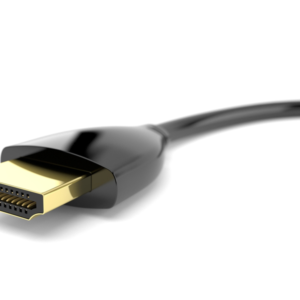As COVID-19 continues to impact us all, some economic relief can be found in the CARES Act
AVIXA, In its third weekly survey of its Intelligence Panel members on the impact of COVID-19 on the AV industry, reports that “there are more signs that business is slowing across the board — not just in live events, where a limited survey sample has said near-unanimously that cancelled projects/events and revenue declines have negatively impacted their companies.”
AVIX rightly points out at the outset of this report that the AV industry is, by nature, optimistic, but 67 percent of AV providers, just in the last seven days, have pointed to revenue declines and 71 percent say sales have slowed. “Both these figures have been climbing week-to-week since AVIXA first fielded the Impact Survey on March 17,”AVIXA says in its report. “In addition, 42 percent of AV providers say they’ve been impacted by supply chain disruptions, the first time that number has exceeded 40 percent.”
These numbers are worrying even as all of us continue to evolve and innovate under the rules of our new normal — creating new avenues to stay connected, educated, and sane. One resource that AV providers can look to for financial relief in the immediate term is the CARES (Coronavirus Aid, Relief, and Economic Security Act) stimulus package, which was signed by the President on March 27 and aims to support U.S. workers and the economy with $2 trillion as we all seek to find ways to stay financially afloat during and after the COVID-19 pandemic. In it are provisions that business owners and workers in our industry can take full advantage of in the next several days.
“Currently it allows integrators to make payroll and cover expenses caused by COVID 19 hardships to include: mortgage & office rental costs, rent for equipment and utilities for spaces storing equipment, utilities, and other fixed expenses, even if home based,” said Dawn Fregosa, CEO of Collaborative Education Advisors. “This allows integrators to also take a breath, look after employees, and have operating capital. It can provide the stability to allow their companies to be able to service their clients, and to reach out to past clients in a thoughtful way. As many residential clients are using their systems more for personal and SIP (shelter in place) uses, they may need upgrades.
“Technology is exponentially changing, and being able to add, modify and continue to install during this time will keep both commercial and residential clients happy,” Fregosa added. “As well, with the stimulus package being released, and so many commercial spaces on lock down except essential staff.”
Provisions for Small Businesses
Launching on April 3 is the Paycheck Protection Program, which falls under relief for small businesses. Under this provision, $350 billion will be distributed to small businesses with 500 or few employees, with businesses potentially receiving loans of up to $10 million based on their payroll data between January 1 and February 29. The loans, which carry a 4% interest rate and are given out by SBA-approved private lenders, are partially forgivable (the principal) if the business meets certain requirements, including proof that the funds were used to sustain the business (payroll, rent, etc.) and the business maintains much of its full-time workforce based on when the loan was awarded; employers will only be liable for accrued interest on the loan, if these requirements are meet.
Business owners can also apply for a $10,000 advance on Emergency Injury Disaster Loans, another SBA loan program that seeks to help ease economic strains due to temporary loss of revenue. Funds will become available in as little as three days after application approval. Business owners can apply for an advance on a disaster loan by visiting www.SBA.gov/Disaster.
“Keeping copious details of expenditures, making sure 1099 contractors are documented throughout and as 75% of the PPP loan could be forgiven, making sure that the heart of the integration industry, our staff, are in a place to pivot work to digital or lower manpower,” advised Fregosa when asked about best practices for loan repayment. “As in most states, integrators fall under essential services, upping our game when it comes to distancing integration/sterile on-site visits, and learning/teaching all team members to use digital tools like zoom, can only benefit integrators. Even sales and demos can be done via zoom. Becoming more adept in storytelling through video, social media, and within your own client base will be key through this industry pivot.”
For a full overview of CARES Act provisions specifically for small business owners, visit here.
Individual Stimulus Provisions
To help stimulate the economy as well as aid U.S. families and individuals who are experiencing financial hardship due to the COVID-19 pandemic, the CARES Act can also provide some relief. Using a sliding scale model, the stimulus package will provide a $1,200 direct payment to tax-paying individuals who earn up to $75,000, with those making above that to receive less based on income. Married couples who filed jointly and have a combined income of $150,000 or less will receive $2,400. Those with children will receive $500 per child under 17 years old.
Single people with more than $99,000 in yearly income will not receive a stimulus check, nor will couples who jointly earn more than $198,000.
For those who are unemployed, the 26-week benefit has been extended to 39 weeks, with an additional $600 added to their weekly benefit check.
Disbursement of stimulus checks will be automatic and are based on the mailing address or direct deposit information provided on your 2019 or 2018 tax return. Sole proprietors and self-employed workers are also eligible for these CARES Act provisions.
“The effects of the pandemic will affect all industries, and are not expected to be short term,” Fregosa said. “Many integrators had to drastically change their business models during the economic meltdown, the financial effects of that will require integrators to re-examine their business models, and focus on business practices that will propel them forward, the CARE package hopefully will provide some financial assistance to integrators to allow them the opportunity to focus on growth ahead.”
To read the CARES Act in full, visit here.









